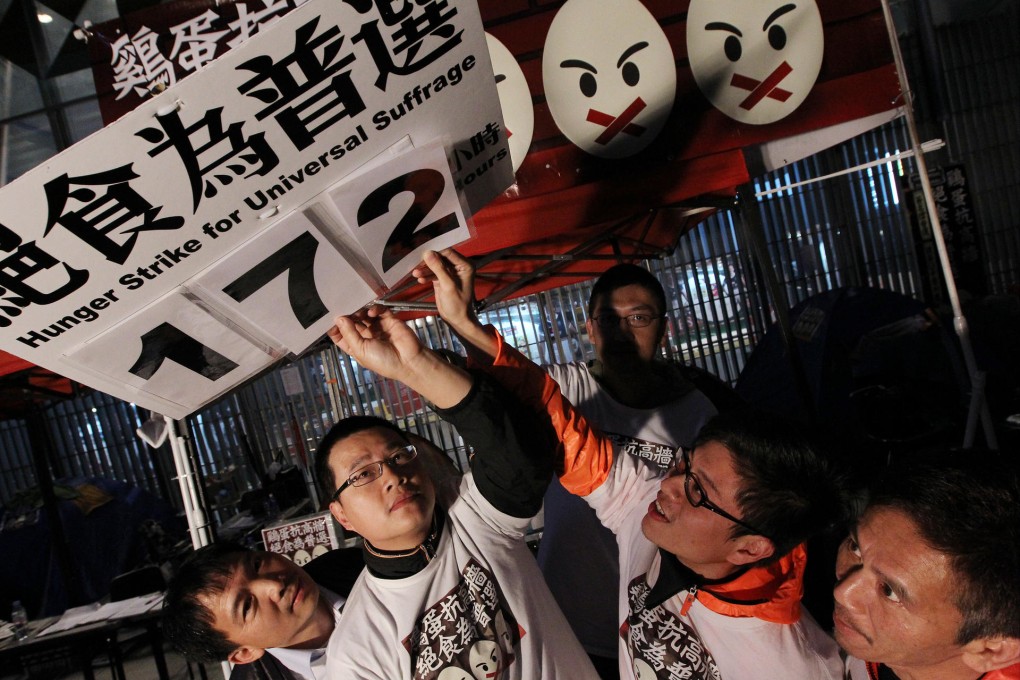Hunger strike for universal suffrage reaches eighth day but is starved of support
Radicals within pan-democratic camp pour scorn on fasting

Hunger strikes are used by activists in many countries to pressure governments to change policy. The protest method is traditionally used by Hong Kong activists, too, but it is now being ridiculed as "old school".

On a gloomy Wednesday morning, Lam Cheuk-ting sat outside HSBC headquarters in Central. Troubling him was not just chilly weather but also hunger - the politician had not eaten for 120 hours.
For Lam, chief executive of the Democratic Party, the fight for universal suffrage in the 2017 chief executive election is worth the personal sacrifice. He and 16 other pan-democrats joined the hunger strike that began on March 28.
By yesterday, five were still holding out. The rest of the team, comprising fellow Democrats and Labour Party members, had abandoned the struggle as their biological indicators fell to critical levels.
At 6pm yesterday, the five broke the 171-hour record for a Hong Kong hunger strike set by retired teacher James Hon Lin-shan during his anti-national-education protest in September 2012.
Yet few, including some political allies, appreciated their efforts. "People say a hunger strike is useless and old school, and unlikely to bring any change," Lam said. "Still, at least we come out and do something."